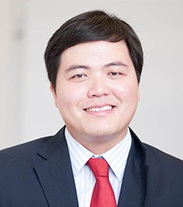
Designation: Associate Dean and Jean Monnet Chair Professor, ESSCA School of Management
SHEN Wei is Associate Dean for China and Jean Monnet Chair Professor at ESSCA School of Management in Angers, France. He is the Founder and Co-Chair of Alliance of Chinese and European Business Schools (ACE), research fellow at Centre Asie of the French Institute of International Relations (IFRI) in Paris, Vice-President of EU-Asia Centre in Brussels and teaches at Sciences Po de Paris and Strasbourg.
Professor Shen received PhD in Human Geography from Loughborough University (UK), LLM from Stockholms Universitet, European Master in Law and Economics and MA in Urban Management from Erasmus Universiteit Rotterdam. He has also studied at CERI/CNRS Sciences Po Paris, Bocconi (Milan), Linkoping, Hamburg and Warwick universities. Prior to his current post, Wei Shen has worked for a number of international organisations including Council of Europe (Strasbourg), Asia-Europe Foundation (Singapore), International Organisation for Migration (Geneva), UNESCO (Hamburg) and International Fund for Agricultural Development (Rome). Wei Shen is an independent academic expert for the European Commission, vice-chair (Economics-Social Science Panel) and expert evaluator for the research (Marie Curie Actions) and education (Erasmus Mundus). He is currently the elected president of the ASEF University Network (ASEFUAN) and member of the Loughborough University Alumni Advisory Board.
Professor Shen is the recipient of a number of awards including the Sir Robert Martin University Medal from Loughborough University, Fellowship of Salzburg Seminar and Our Common Future Fellowship from Volkswagen and Mercator Foundations, his research and studies have been funded by European Science Foundation, European Commission, Royal Society, Universities Committee in London, Foundation for Urban and Regional Studies, European Commission and University Association of Contemporary European Studies (UACES). He has published widely on the topics of Asia-Europe relations, international education, migration and China’s economy and global role, and his articles and interviews have appeared on International Journal of Educational Development, Environment and Planning A, Le Monde L'Atlas des civilisations, Asia-Europe Journal, Le Monde, International Herald Tribune/New York Times, China Daily, Science Career, UK House of Commons and Xinhua News Agency etc. Currently, he coordinates the UACES-funded Collaborative Research Network on EU-China Relations with colleagues from College of Europe and Free University of Berlin.
Topic: Student Migration, Return Migration and Re-migration: The Case of Chinese Students in France
Abstract: Chinese students and their families invest very heavily in education, and study abroad is considered as a career and personal strategy. Chinese migration to France is not a new phenomenon; however, France has seen rapid growth of migration from China in the past two decades. Among the increasingly diverse migratory flow, a prominent group is Chinese students. As in many European countries, more and more Chinese students are now studying in France, at universities, grandes écoles and language schools etc. With 10,000 student visas issued in 2012, there are currently around 38,000 Chinese students in France - China is edging to overtake Morocco as the largest source of international students.
There are various aspects of rationales for leaving China to study in France, such as educational and family reasons. Opper, Teichler and Carlson (1990) also pointed out the anticipation that international education can lead to employment abroad or an international career as an important motivation for student migrants. There is limited research focusing on this group of migrants. Therefore, this paper will analyse the circular migration of Chinese students between China and France by focusing on Chinese students at elite French business schools. It illustrates the importance of prior experiences and pre-acquisition of academic and professional capital on their choice to migrate to France. It examines how Chinese students accumulate various forms of capital in Paris (economic, human, cultural, and social etc.) as part of their migration strategy. At the same time, this paper investigates how family ties with China and institutional agents (private and public sectors) and the multiple-layers of forces (national and supranational) behind Chinese student return migration. This paper argues that the strong family relations and contacts, career strategy and prospects for returnees and confidence in the Chinese economy are significant return factors. Returnees’ academic, professional and social experiences in France are also important in their decision. In addition, it shows how these talents are integrated in the skilled labour market and how they maintain connections with France. The return migration of Chinese students from France is a unique link and network, which needs cooperation from both parties to ensure a win-win brains circulation.